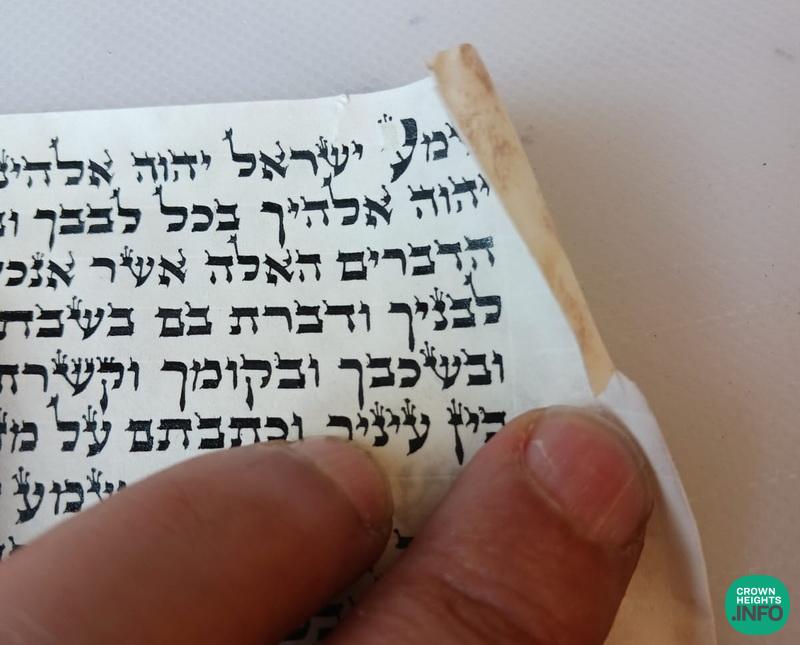
There’s Something You Can Do for Eretz Yisrael Right Now
by The Vaad Kinus Hakhel for Sofrim
Recent events in Eretz Yisrael have shocked us all to the core, leaving us with a mixture of grief, trauma, and fear.
But Baruch Hashem, to our great fortune, we aren’t at a loss as to what we should do. We have marching orders from the Rebbe in such situations, with clear guidance from past events similar to what we’re witnessing now.
One thing the Rebbe returned to time and again is the importance of kosher mezuzos.
In 1974, Arab terrorists infiltrated the city of Maalot in northern Israel and held a large group of teenagers hostage in school. Tragically, many were killed, at first reported to be 17, and then four more.
The Rebbe spoke about this event, pointing out the eerie fact that exactly 17, and then four more mezuzos in the building were found to be pasul. “Like a helmet that protects a soldier from enemy fire, a mezuzah provides spiritual protection for every Jew,” the Rebbe explained.
While all mitzvos provide protection, the mezuzah is uniquely positioned as a mitzvah dedicated to this purpose. Prominently featured on its outer case is the letter shin, the first letter of Hashem’s name “Shin-Daled-Yud,” which stands for “shomer dalsos yisrael—Hashem protects the Jewish people’s doors.” What’s more, the Zohar tells us that the word “mezuzos” is a portmanteau of the words, “maves zaz—death is move aside!”
And of course, the passuk explicitly tells us, “Hashem yishmor tzescha u’voecha—Hashem will protect you as you come and go,” a passuk commonly associated with the mezuzah hanging proudly on every Jewish door. An important detail that emerges from this passuk is that the mezuzah provides protection not only when coming into the house, but also when going out of the house—including, of course, the battlefield.
Once again, in 1976, during the famous Entebbe hostage crisis, the Rebbe pointed out how too many of the hostages either had no mezuzos on their homes at all, were pasul, or were in the wrong location.
“A mezuzah on the door provides protection not only when the homeowner comes in, but for all time, and for all Jews,” the Rebbe explained. Such is the protective power of this special mitzvah.
So, as chassidim of the Rebbe, if we’re looking to do something to protect our brothers and sisters in Eretz Yisrael, here’s two things we can do right now:
- Make sure all your mezuzos are kosher to the highest standard. If you haven’t checked them in a while, now would be a great time to do so. And if you’ve never thought about who’s checking your mezuzah, it’s worth thinking about now. Also, double check that all mezuzos are in the proper location. When in doubt, consult with a Rav.
- Get involved in mivtza mezuzah! Ensure that every Jew you know has mezuzos on their doors, starting with the front door! It could be a co-worker, a non-religious relative, or just someone you know. Whoever it is, every mezuzah that goes up on another Jewish door provides direct protection to our brothers and sisters in Eretz Yisrael!
Vaad Kinus Hakhel for Sofrim is a community organization that brings together local Sofrim. This past summer, they author organized a “Kinus Sofrim” event in Crown Heights hear from various experts, including Rabbanim and long-time Sofrim. In an upcoming article, the author will share important points that emerged from that Kinus.












